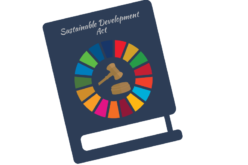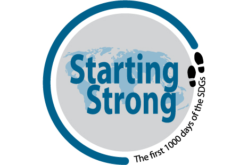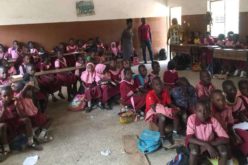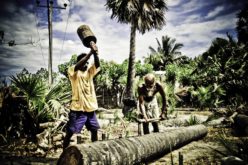From Planning to Implementation: Raising Awareness on the UN Sustainable Development Goals in Sri Lanka
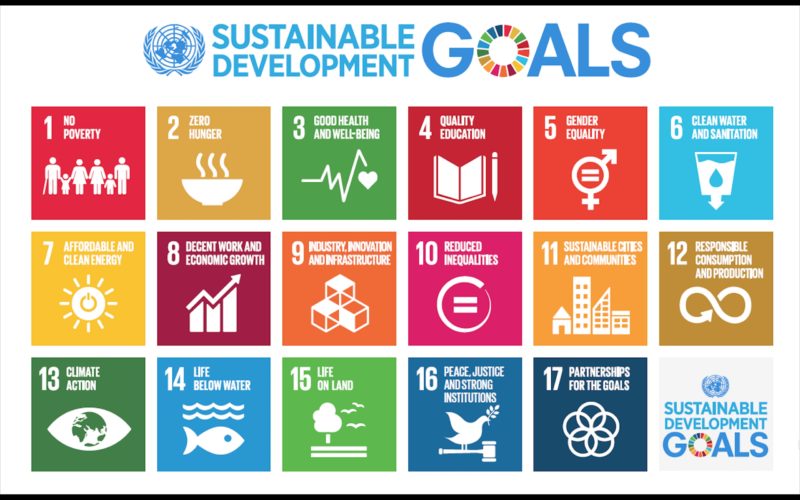
By Yolanthika Ellepola, Research Assistant at Institute of Policy Studies of Sri Lanka, IPS
This blog post discusses a component vital for the success of the Sustainable Goals (SDGs) in Sri Lanka: a nation wide education and awareness raising campaign on the goals. The author argues that a high level authority must take up the responsibility.
Three years ago Sri Lanka adopted the 17 Sustainable Development Goals (SDGs) alongside all but one member state. These goals, also known as the 2030 Agenda, have the overarching aim of ending poverty and addressing social, economic, and environmental issues. They are interconnected and inclusive in nature. Since adopting the 2030 Agenda, Sri Lanka has taken several steps to support its realization.
This July, Sri Lanka will be presenting the first voluntary national review at the High Level Political Forum. Its purpose is to assess the extent to which the nation has made progress in implementing and accomplishing the SDGs. Several Sri Lankan stakeholders have taken proactive steps towards achieving the SDGs, among them: the National Planning Department, the Department of Census and Statistics, various ministries, such as the Ministry of Health, and the Parliamentary Select Committee. Their efforts are acknowledged and commended. But a critical aspect for implementation has been overlooked: the need for a nation wide education and awareness raising campaign on the goals. It is a component essential for a successful implementation.
SDG Implementation in Sri Lanka
In February 2016, the Sustainable Development Division was established within Sri Lanka’s Ministry of Sustainable Development and Wildlife (MSDW). Its mandate is to take the lead role in SDG implementation, monitoring and evaluation. It is also tasked with the formulation of sustainable development policies, guidelines, and tools. In fact, several government agencies are responsible for different activities for SDG implementation. But the extent to which these agencies coordinate actions amongst themselves is questionable. For instance, the National Planning Department (NPD), based at the Ministry of Finance, is responsible for ensuring that SDGs are integrated into the targets of the national development framework. In parallel, the Department of Census and Statistics (DCS), is held accountable for developing SDG indicators and collecting data.
Strategic plans and a road map have been drawn to facilitate the implementation of the SDG agenda. For example, ensuring food security and nutrition is one of the SDG priority goals in Sri Lanka. The Ministry of Agriculture and Health, coupled with the School Health and Nutrition Division (Ministry of Education), is working to improve the nutrition status of women and children in Sri Lanka. They want to implement agriculture productivity enhancing activities and behavioural change policy programmes. They will be providing guidance on nutrition policy formation, planning and execution of programmes.
Challenges in Decentralized Implementation of SDGs in Sri Lanka
The flagship report, Sri Lanka: State of the Economy (2017), by the Institute of Policy Studies (IPS) of Sri Lanka, and discussions with stakeholders, make evident that many are ill informed about the SDGs. This includes certain ministries and local government officials, the private sector, communities, and even the media. In my view, the prevalence of inadequate knowledge about the overall Agenda stems from having multiple agencies responsible for distinct components of SDG implementation. As a result, the central importance of raising awareness among all stakeholders has been overlooked. This means there is also a lack of awareness of the active role they could play in this transformative agenda. Similarly, the same patrons have been found to be unaware of the complexities, the importance and the relevance of achieving the SDGs. In certain instances, knowledge and understanding of the SDGs rests among a few selected government officials, failing to trickle down to local authorities and junior officials s in the administration.
The Way Forward
To address this situation, a high-level authority, preferably within the Presidential Secretariat, should be responsible for driving a nationwide awareness and education campaign on the SDGs. It would showcase strong political will and commitment by the government. Through such a campaign, stakeholders would gain knowledge, a sense of responsibility and ownership towards achieving the SDGs. Perhaps they would even feel an obligation to protect the economy, society, and environment for future generations. Such an extensive, nation-wide and tri-lingual campaign, should include the following elements:
- Stakeholder education on the complexities of SDGs, the importance of achieving the targets, and the impact of the SDGs on their daily lives;
- Clear articulation of the critical role they could play to contribute towards sustainability; and
- Effective utilization of both mainstream and social media to reach diverse stakeholders, such as:
- the private sector,
- communities (including school children, elderly, differently abled, and vulnerable populations),
- ministries and government agencies, local governments,
- and civil society.
It has been more than 1,000 days since Sri Lanka adopted the SDGs. Yet, much more progress could have been made to date. It is time that high-level authorities accelerate their political support and commitment to the 2030 Agenda. The best way to do this is through a nationwide awareness campaign; one that energizes a wide range of stakeholders towards achieving the SDGs. If effectively implemented, such a campaign would serve to ease the impending constraints entailed in SDG implementation.
3,910 total views, 6 views today



